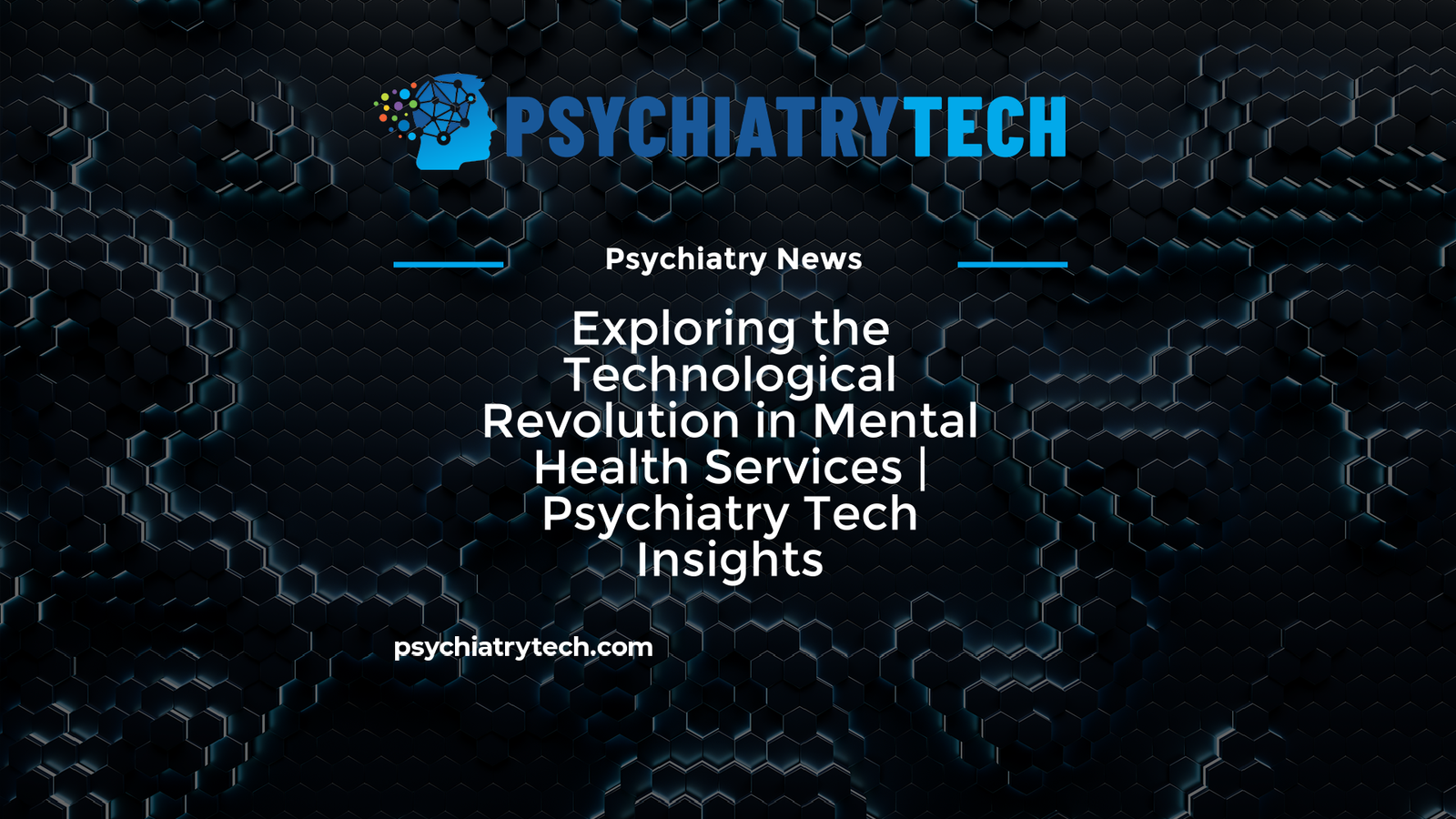Exploring the Technological Revolution in Mental Health Services | Psychiatry Tech Insights
Advancements in technology have been instrumental in the field of psychiatry, enabling mental health professionals to provide better care to their patients. Technology can assist with diagnosis, therapy, and medication management, making it an essential tool in the mental health services. This article will explore the latest technological advancements in the field, including apps, wearable devices, and telemedicine.

Discover The World's MOST COMPREHENSIVE Mental Health Assessment Platform
Efficiently assess your patients for 80+ possible conditions with a single dynamic, intuitive mental health assessment. As low as $12 per patient per year.
The Convenience of Telemedicine in Mental Health
Telemedicine is an innovative technology that allows patients to receive medical consultations from the comfort of their homes. Telemedicine in mental health care has been pivotal in breaking down barriers to accessibility, making it easier for patients to seek help.
Telepsychiatry allows psychiatrists to connect with their patients online, using videoconferencing software. Patients can receive mental healthcare regardless of their location, whether they are in remote areas or urban centers. Telemedicine decreases the cost of care by eliminating travel expenses, resulting in cost-effective treatment for patients.
Telemedicine in mental health care can also address issues of stigmatization that may deter individuals from seeking treatment. Patients who are reluctant to visit clinics in person can receive care privately from their homes. Telemedicine allows patients to retain their anonymity, which many find more comfortable in discussing their mental health concerns.
Apps and Wearable Devices in Mental Health Care
Technology has revolutionized how mental health professionals work with patients by providing access to tools like a variety of apps and wearable devices, which can assist in the detection, monitoring, and treatment of mental health conditions.
Apps and wearable devices record various parameters which can help mental health professionals get a better understanding of their patient’s mental health. For example, wearables such as watches or wristbands that monitor heart rates, blood pressure, and sleeping patterns can provide valuable information for anxiety and depression treatment. Wearable technologies can monitor cognitive, physical, and emotional parameters and give insight into patients’ conditions. Physicians can use this data to help design personalized treatment for their patients.
Mobile applications help patients manage their mental health conditions by tracking mood, keeping journal records, and setting reminders for medication management. Mental health apps also include various tools such as stress reduction techniques, relaxation programs, and guided meditations. Apps can provide patients with resources and tools that may be useful in managing mental health concerns.
The Challenge of Mental Health Data Privacy and Security
As technology continues to evolve, mental healthcare organizations need to prioritize data privacy and security. Mental health data is sensitive information that requires strict protection and regulation to maintain confidentiality. Mental health professionals and organizations must adhere strictly to data privacy laws and regulations, particularly when using apps, telemedicine, and wearable technologies.
Mental health professionals should exercise caution and use only reputed and trusted technologies that are secure and comply with data privacy regulations. It is also essential to educate patients about the potential privacy concerns and security risks associated with sharing their mental health information online. Mental health professionals and organizations must take appropriate measures to secure patient information and protect data privacy through safeguards, compliance protocols, and ethical practices.
Conclusion
Technology will continue to advance and provide innovative solutions for mental healthcare, promoting better diagnosis, treatment, and care for patients. Telemedicine, wearable technologies, and mental health apps are some of the technological tools that have revolutionized mental healthcare. It is important to prioritize data privacy and security when using technology in mental healthcare and adopt ethical practices to ensure patients’ confidentiality and privacy.
As the world becomes more digitized, technology is set to play a critical role in breaking down barriers to mental health treatment and providing access to care to those who need it most. What other technological advancements do you think are necessary in mental health care? Please share your thoughts and comments with us and be sure to follow us for more exciting insights into the future of psychiatry technology!

